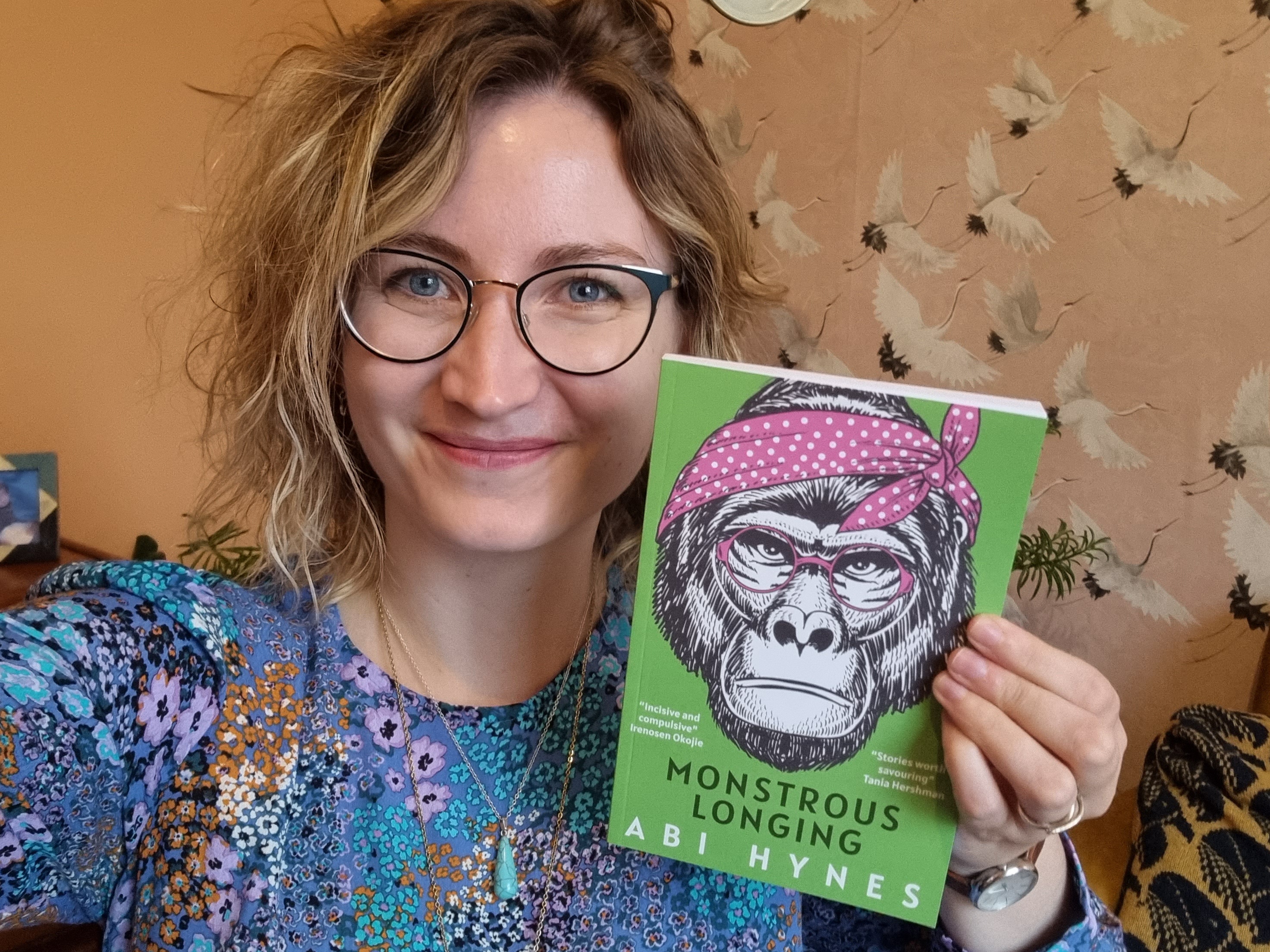When the pitch for Monstrous Longing landed in the Dahlia Books inbox I couldn't be more thrilled. There was just something about the collection that worked. I couldn't quite figure out what it was. The more I spoke to the author Abi Hynes, the more things fell into place. I am so pleased to have spent a year working with Abi to publish her debut short story collection and I've learnt so much about her approach to writing short stories. In this latest blog, Abi writes about what writing for TV taught her about short stories.

When it came time to finalise the manuscript for my short story collection, Monstrous Longing, earlier this year, my editor Farhana Shaikh and I realised that we needed a new story to balance out some of the different aspects of the book. I was terrified.
You see, it had been a long time since I’d written a new short story. For the last few years I’d been mostly writing drama: for theatre, for radio, and – most recently – for TV. But while I fretted about whether I’d be too rusty to wrangle my fresh story into any sort of readable shape, what surprised me was how many things I found I’d learned through screenwriting that I could apply to short fiction.
Character is king (or queen)
When I write a TV script, everything begins with character. I have a specific process for how I develop a protagonist (or, sometimes, multiple protagonists), and the entirety of the plot grows from there.
Personally, I favour characters who have already lived a life before we meet them. Maybe they’re running away from some terrible crime, or escaping a relationship, or on a mission to prove they’re as good as their brother. But the more baggage they have to bring to the screen – or page – the more I find the story writes itself.
Don’t outstay your welcome
TV drama, just like short stories, like you to get to the point and get there fast. The best ones don’t linger in a moment or a scene. They don’t take their time warming up, they just whisk you along or even rush ahead and make you jog to keep up with them. Get in, do the job, get out again. And always leave us wanting more.
VIBES
This is a part of the screenwriter’s job that I don’t hear talked about so much, but your script will never really fly if you don’t have a very good idea of what you want your show to feel like. The same is absolutely true for short fiction. You’re delivering an experience, and you don’t have many words to do it in. What would be on the mood board for this story? What would the soundtrack sound like? What’s its colour palette?
The inevitable ending
I love an ending! The best ones take you by surprise but somehow feel inevitable; and better yet, they add a layer of confidence and urgency to your writing that is palpable to the reader or viewer. Most people can deliver a fun premise or a great opening gambit, but it’s never satisfying to watch a great start meander and then fizzle out because the writer hadn’t quite worked out what to do with it.
I’d argue that a short story, like a TV show, is ALL ending. I like to know where I’m going right from the first line. Your invitation for your reader or your viewer to come with you on the journey then naturally becomes irresistible.
But short stories can break the rules
Finally, I think that short stories are one of the most flexible, mercurial, magical forms of writing out there. They can break the rules that TV drama really has to stick to if it’s going to grab and hold an audience’s attention for several hours or even several seasons, and compete with the entire catalogue on Netflix.
I love writing short fiction, because in this form I can be the imp who ignores the rulebook. A short story can take the form of a lemon meringue pie recipe and the notes in its margins. It might tell the story backwards, or sideways, or from the point of view of a pigeon watching from a church steeple.
Much as I’d learned from writing for TV, the truth is that I still needed the final piece of the puzzle. I didn’t find the final form of my Christina story until I was ready to ditch the scaffolding that had got me to a first draft, and let the short story tell me what it really wanted to do and be.
The result, I hope, was a success. But it’d never be on TV.
Abi Hynes is an award-winning drama and fiction writer based in Manchester, UK. She’s a graduate of Channel 4’s 4Screenwriting Course, the BBC TV Drama Writers’ Programme, and her script LONG LOST was on the Brit List in 2022. She is developing a number of original projects TV and she wrote the first four episodes of DARK HARBOUR for Audible. Her short story collection, Monstrous Longing, is out now with Dahlia Books.
Comments